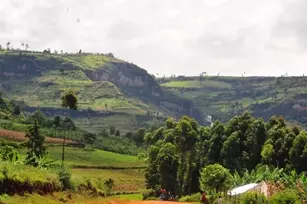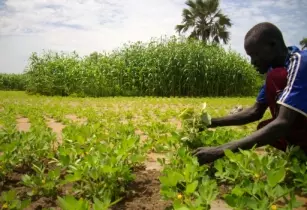 African governments need to identify areas of farmland and put the right infrastructure in place to encourage investment in bankable agricultural projects, it has been claimed
African governments need to identify areas of farmland and put the right infrastructure in place to encourage investment in bankable agricultural projects, it has been claimed
“I don’t see the challenge as access to finance, the first challenge is access to land,” said Dr Teddy Ngu, GB Foods Strategy and Integration Director, Africa and Middle East to delegates at the Agroinvestment Summit in London on 5 June.
“Most of the people who succeed in agriculture do so on large land masses not on small-holder farms. Industrial farmers are the ones who need to be encouraged to do successful farming. Look at what’s happened in Thailand. They have built canals and dams. In the same way, African governments need to identify areas and put the right infrastructure in place; dams, roads, power facilities, and then invite people to invest. Let’s not get too hung up on exporting products when there is enough local demand.”
He cited Nestle as one of the most successful Nigerian companies on the Nigerian Stock Exchange, adding that “it does not export most of what it produces in Nigeria”.
"A businessman I know, also makes more money trading ginger within Nigeria than trying to export it, which can take 200 days to ship ginger to Europe. This is too long.”
NGU said GB Foods has been in the process of identifying 1,000 ha of land for more than a year, but it could not find it. “We want to do industrial farming in Africa but it is impossible to find adequate land. Often you have to negotiate with many people who have ownership rights over the land. I think governments have to help those who show credible interest in land for industrial farming purposes. For example, they could help establish green zones like stable crop processing zones in Nigeria."
Emmanuel Doni-Kwame, Secretary General of ICC Ghana, who quoted earlier Burkina Faso as a success story with their tomato farms, agreed, “We have to get it right to satisfy the demand at home before we start thinking internationally.”






